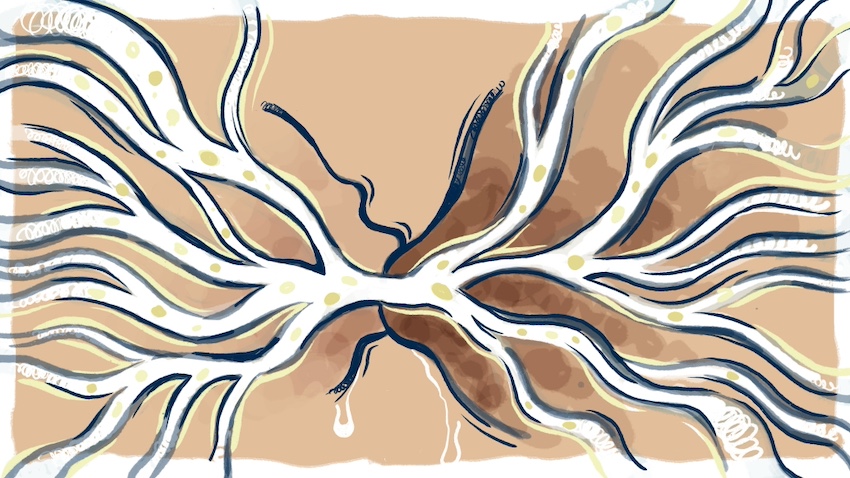An animal model uncovers an association between critical fats in a breastfeeding individual’s blood, their breastmilk, and the baby’s blood.

Breastmilk is widely touted as an important source of nutrition for infants, but there are gaps in understanding how a breastfeeding person’s diet influences the nutrients that get passed on to babies.
Now, a recent Michigan Medicine study offers clues to how lipids, or fat, in a breastfeeding individual’s blood may be connected to their baby’s nutrition.
Using a sheep model, researchers identified the lipid profile – the types and amounts of fat – in a breastfeeding mother’s blood, their breastmilk, and the baby’s blood.
They found that while lipids among the three sources are distinct, they’re also closely related and could be considered as one interconnected system, according to the research published in Scientific Reports, part of the Nature publishing group.
“Our findings suggest that milk acts as a crucial intermediary, transferring important fats from the mother sheep to the lamb, which is essential for the baby’s growth and development,” said senior author Vasantha Padmanabhan, Ph.D., emeritus professor of pediatrics and communicable diseases and obstetrics gynecology at the University of Michigan Medical School.
“Our study identified a dynamic relationship between lipids in the maternal plasma, milk and offspring plasma. This tells us that maternal diet can significantly impact the quality of breastmilk and the baby’s health.”
The World Health Organization and American Academy of Pediatrics recommend exclusive breastfeeding for the first six months of life.
Milk includes a complex mix of proteins, lipids and carbohydrates.
Lipids, however, provide the primary energy source for infants and play a critical role in intestinal development, brain development and cognitive function while also protecting certain diseases in adulthood, authors say.
“A thorough understanding of breastmilk lipids is essential to identify the specific ones that play key roles in infant growth and development,” said lead author Soundara Viveka Thangaraj, Ph.D., postdoctoral research fellow working with Padmanabhan in the Department of Pediatrics at Michigan Medicine.
“Our study highlights that breastfeeding is not just a simple transfer of nutrients, but a complex biological system that has the potential to adapt to the needs of the infant. These findings emphasize the critical importance of maternal nutrition, not just during pregnancy, but throughout the breastfeeding period, as it directly impacts the quality of breast milk.”
The research opens the door to further studies that could lead to better maternal nutritional strategies and optimizing infant feeding practices, authors say.
“Filling the gap in research on how important fats get passed from the breastfeeding parent to their baby is an important step in improving maternal and child health and nutrition,” Thangaraj said.
“Understanding this relationship is crucial for ensuring that breastfeeding people can make informed dietary choices that benefit their babies.”
Additional authors: Adel Ghnenis, Brooke Pallas, and Brigid Gregg, all of U-M and Arpita Kalla Vyas of the Washington University School of Medicine.
Study cited: “Comparative lipidome study of maternal plasma, milk, and lamb plasma in sheep,” DOI: 10.1038/s41598-024-58116-5, Scientific Reports.
This story was originally published by the Michigan Health Lab Blog on August 20, 2024.